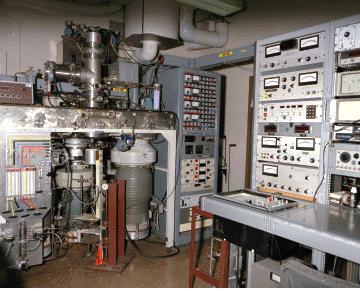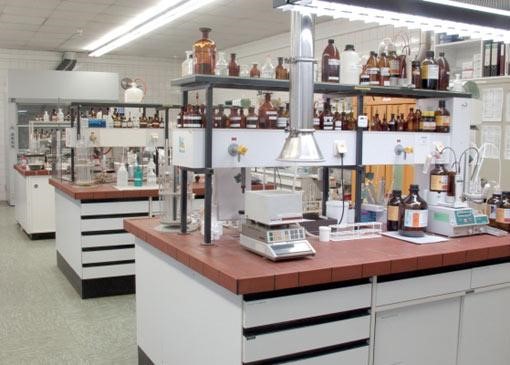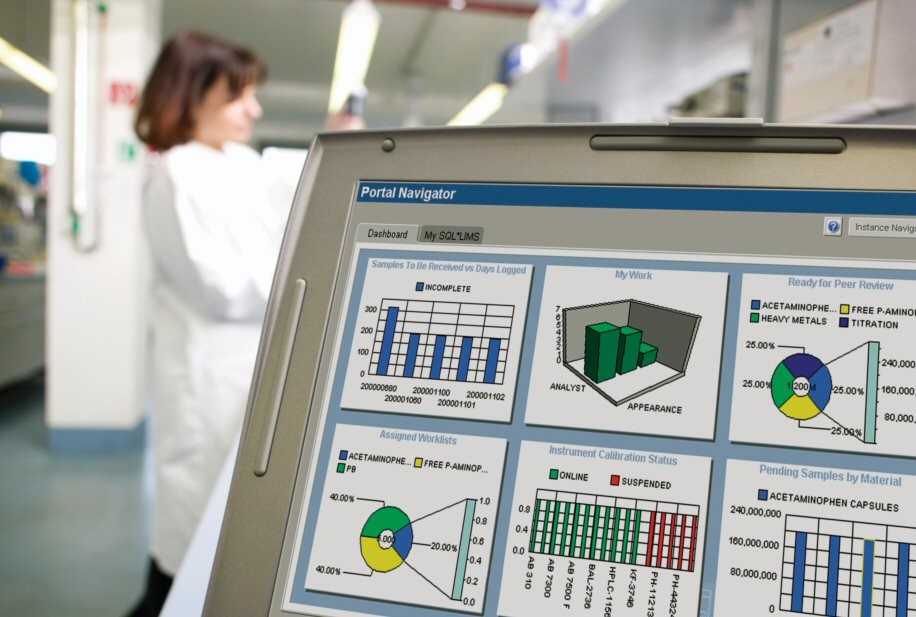COURSE OVERVIEW
LE0179 : Transfat in Food Analysis Using GC/MS Method

OVERVIEW
| COURSE TITLE | : | LE0179 : Transfat in Food Analysis Using GC/MS Method |
| COURSE DATE | : | Apr 20 - Apr 24 2025 |
| DURATION | : | 5 Days |
| INSTRUCTOR | : | Dr. Mohamed Elsayed |
| VENUE | : | Dubai, UAE |
| COURSE FEE | : | $ 5500 |
| Request For Course Outline | ||
Course Description
This practical and highly-interactive course includes real-life case studies and exercises where participants will be engaged in a series of interactive small groups and class workshops.
Gas chromatography-Mass spectrometry (GC/MS) combines the fine separating power of GC with the uniquely powerful detection capabilities of MS. The GC/MS has been widely heralded as the “gold standard” in scientific analysis as Gas Chromatography/Mass Spectrometry combines the strengths of the two powerful analytical techniques. The GC/MS instrument is made up of two parts.
The gas chromatography (GC) portion separates the chemical mixture into pulses of pure chemicals and the mass spectrometer (MS) identifies and quantifies the chemicals. This powerful technique is particularly suitable for the analysis of mixtures of volatile and low relative molecular mass compounds (<800) such as hydrocarbons, fragrances, essential oils and relatively non-polar drugs. Chemical derivatisation, e.g. trimethylsilylation, can often be employed to increase the volatility of compounds containing polar functional groups (-OH, -COOH, -NH2, etc.) thereby extending the range of suitable analytes to such compounds as steroids, polar drugs, prostaglandins, bile acids, organic acids, amino acids and small peptides.
Chromatographic and mass spectrometric analyses have become increasingly demanding. Chromatographers need to know more about the principles of ion formation and mass spectral fragmentation to identify separated analytes. Mass spectrometrists need to know about analyte separations to obtain a more meaningful mass spectrum that can lead to an unambiguous identification.
The course is designed to introduce the fundamental principles of GC/MS technique and its applications, with special emphasis on the recent development and technology. The course will cover Enrichment Techniques, Interfaces, Ionization Modes, Mass Filters, Data Acquisition, Qualitative & Quantitative Analysis, System Maintenance and Troubleshooting and more.
The course combines lecture, laboratory, and problem-solving sessions that use actual GC/MS experimental data acquired by the participants. Through the analysis of these data, you will learn important fundamental operational techniques and will solve common problems that require you to hone your interpretational and experimental skills.
link to course overview PDF
Gas chromatography-Mass spectrometry (GC/MS) combines the fine separating power of GC with the uniquely powerful detection capabilities of MS. The GC/MS has been widely heralded as the “gold standard” in scientific analysis as Gas Chromatography/Mass Spectrometry combines the strengths of the two powerful analytical techniques. The GC/MS instrument is made up of two parts.
The gas chromatography (GC) portion separates the chemical mixture into pulses of pure chemicals and the mass spectrometer (MS) identifies and quantifies the chemicals. This powerful technique is particularly suitable for the analysis of mixtures of volatile and low relative molecular mass compounds (<800) such as hydrocarbons, fragrances, essential oils and relatively non-polar drugs. Chemical derivatisation, e.g. trimethylsilylation, can often be employed to increase the volatility of compounds containing polar functional groups (-OH, -COOH, -NH2, etc.) thereby extending the range of suitable analytes to such compounds as steroids, polar drugs, prostaglandins, bile acids, organic acids, amino acids and small peptides.
Chromatographic and mass spectrometric analyses have become increasingly demanding. Chromatographers need to know more about the principles of ion formation and mass spectral fragmentation to identify separated analytes. Mass spectrometrists need to know about analyte separations to obtain a more meaningful mass spectrum that can lead to an unambiguous identification.
The course is designed to introduce the fundamental principles of GC/MS technique and its applications, with special emphasis on the recent development and technology. The course will cover Enrichment Techniques, Interfaces, Ionization Modes, Mass Filters, Data Acquisition, Qualitative & Quantitative Analysis, System Maintenance and Troubleshooting and more.
The course combines lecture, laboratory, and problem-solving sessions that use actual GC/MS experimental data acquired by the participants. Through the analysis of these data, you will learn important fundamental operational techniques and will solve common problems that require you to hone your interpretational and experimental skills.
TRAINING METHODOLOGY
This interactive training course includes the following training methodologies:
LecturesPractical Workshops & Work Presentations
Hands-on Practical Exercises & Case Studies
Simulators (Hardware & Software) & Videos
In an unlikely event, the course instructor may modify the above training methodology for technical reasons.
VIRTUAL TRAINING (IF APPLICABLE)
If this course is delivered online as a Virtual Training, the following limitations will be applicable:
| Certificates | : | Only soft copy certificates will be issued |
| Training Materials | : | Only soft copy materials will be issued |
| Training Methodology | : | 80% theory, 20% practical |
| Training Program | : | 4 hours per day, from 09:30 to 13:30 |
RELATED COURSES

LE0430 : السلامة في الختبرات
- Date: Jan 25 - Dec 29 / 3 Days
- Location: Al Khobar, KSA
- Course Details Register

LE0190 : Laboratory Quality Management ISO 17025 SOP Accreditation Documentation and Auditing
- Date: Jan 11 - Jan 15 / 3 Days
- Location: Doha, Qatar
- Course Details Register

LE0160 : Gas Chromatography Operation Application Troubleshooting and Method Validation
- Date: Jan 18 - Jan 22 / 3 Days
- Location: Al Khobar, KSA
- Course Details Register

LE0145 : Laboratory Information Management System (LIMS)
- Date: Jan 11 - Jan 15 / 3 Days
- Location: Istanbul, Turkey
- Course Details Register
